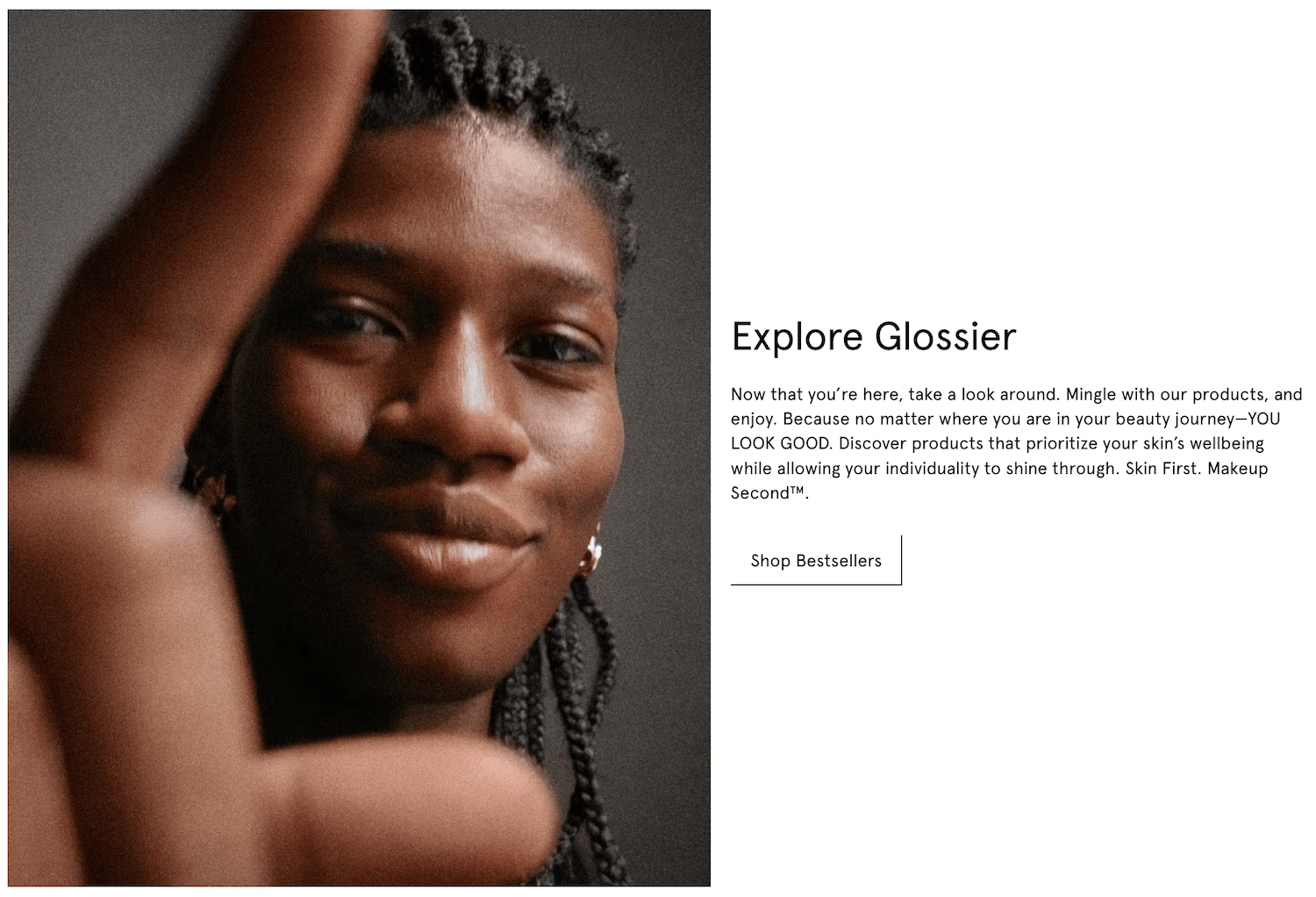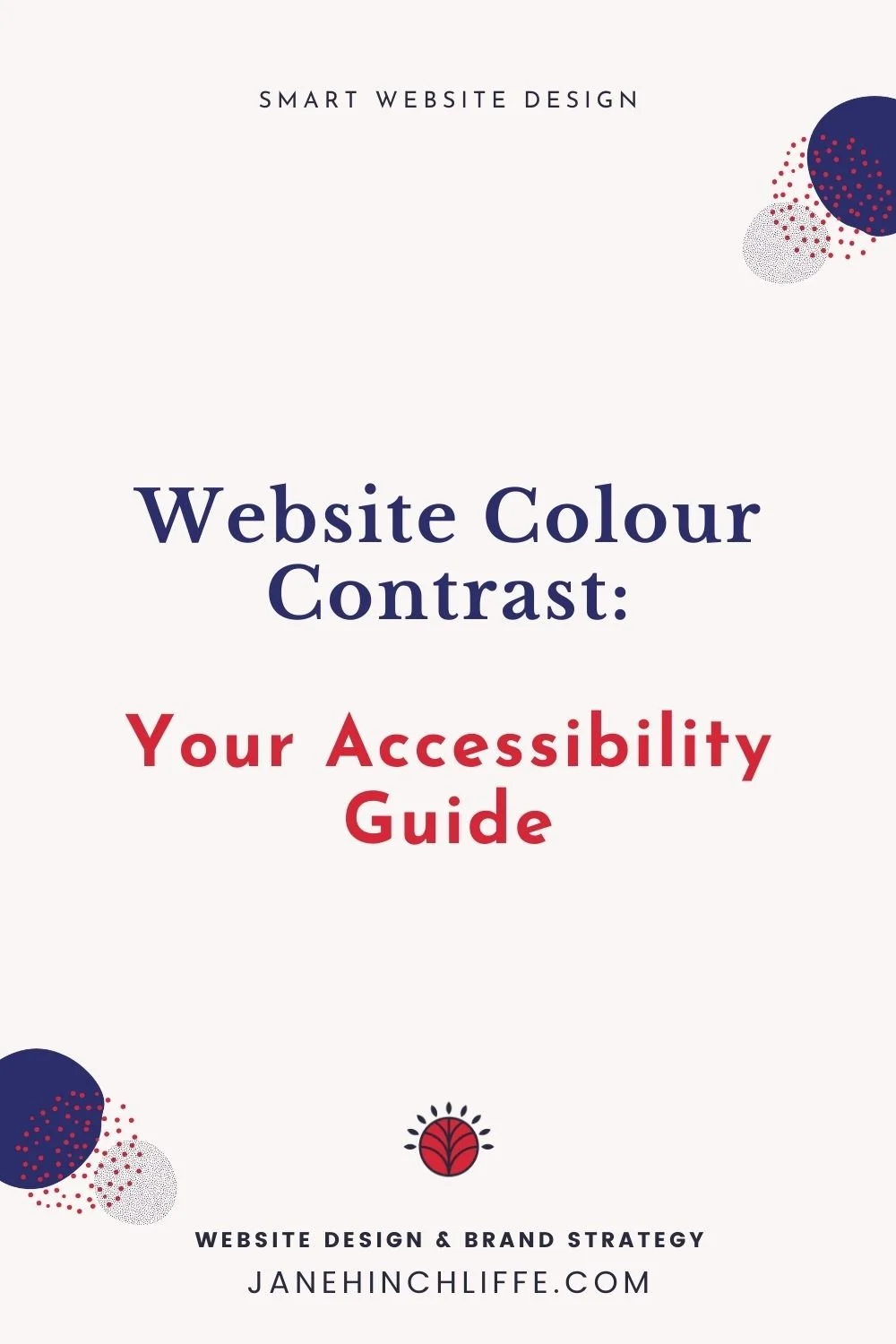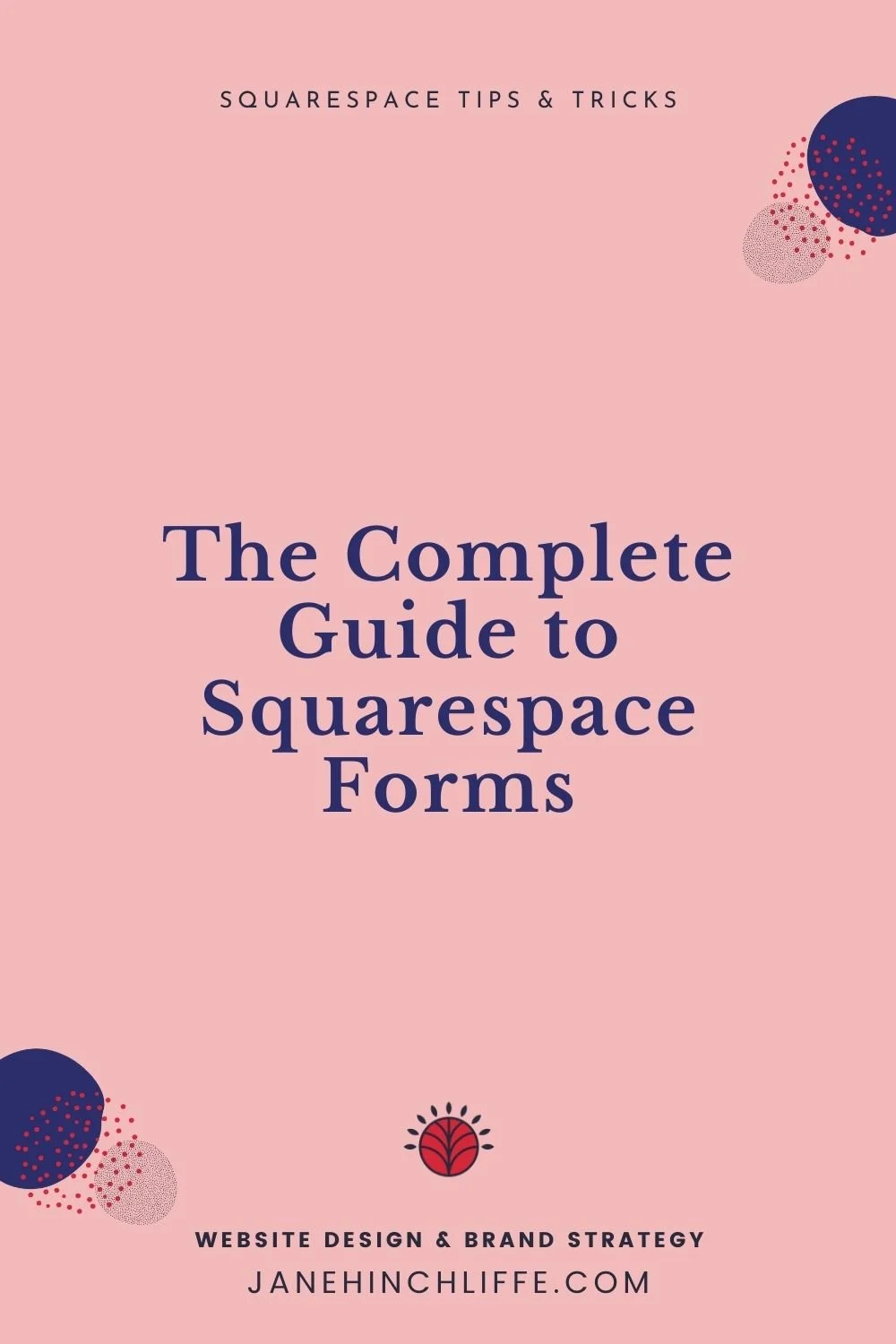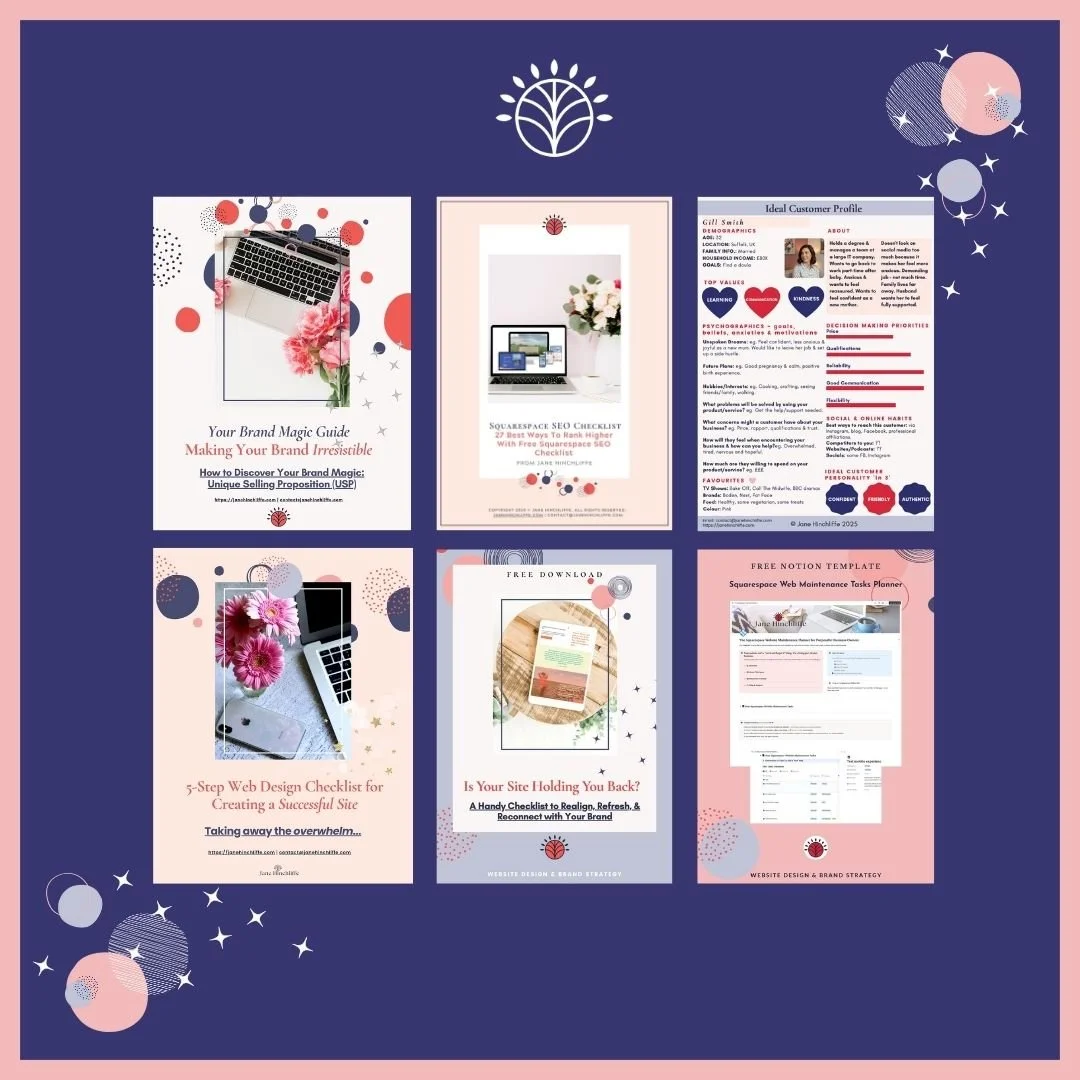Authentic Brand Storytelling for Your Website About Page
So... you want to create a website About page that'll make your ideal clients say "Wow, this is exactly who I've been looking for!"? Yeah, I thought so!
As a Squarespace Website designer and brand strategist, I've seen firsthand how authentic brand storytelling with a well-crafted website About Page can transform a good website into an irresistible one!
Your web About page isn’t just a summary of who you are —it’s the heartbeat of your brand. This is where you connect authentically with your audience, share your journey, and highlight the values and mission that set you apart. It also speaks to the main problem your client wants to solve, demonstrating that you’re the best person to help.
Okay, let's explore how you can craft an About page that's not just another boring business bio but a proper page-turner that will keep your audience wanting to stay.
Scroll down👇 for my video walking through real-life brand examples.
Firstly, Authentic Brand Storytelling Isn't Just a Fancy Marketing Term
It's what separates the 'meh' brands from the ones that make you feel all warm and fuzzy inside. You know, the ones you can't stop talking about to your friends over a cuppa.
Because as humans, we're wired for stories. We crave them like we crave a good Yorkshire pudding on a Sunday roast. And that, my friend, is your golden ticket for making genuine connections with your audience.
Screenshot: Pippa Small Jewellery. Showcasing brilliant brand storytelling from her About page.
So, how can you create a website About page that resonates with visitors and encourages them to engage with your brand?
Let’s dive into 5 key elements for authentic brand storytelling that can make your website's About page unforgettable.
1. Nail Your Brand Story's Core Elements
Don’t get too carried away. It’s not about listing every detail of your brand’s history but focusing on what makes it unique and aligned with your audience’s values.
Right, let's get down to brass tacks. Your brand story needs some key ingredients:
Your business purpose (why you drag yourself out of bed every morning)
Your business values (what makes you tick, see example screenshot just below)
Your business mission (what you're out to achieve in this world)
Your ‘why’ behind what you do
The key here? Be authentic. None of that wishy-washy corporate speak, thanks very much.
Screenshot: Glossier UK. Great web copy example sharing business values from their About page.
Tip: Ask yourself what motivates you to keep doing what you do and what impact you want to have. This can often reveal the core of your brand story.
Here's a bit of data to chew on: A recent HubSpot survey found that a whopping 80% of consumers feel more connected to brands that share their values.
So, being your authentic self isn't just good for the soul - it's good for engaging your audience too!
2. Share Personal Experiences for Deeper Connection (Warts and All)
Now, don't go thinking your web About page should read like a CV. Oh no, we want the juicy bits but only if it relates to your ideal client or customer and their challenge! Share those personal stories that'll make your audience go, "Crikey, that's just like me!"
Remember, audiences today value authenticity and transparency, and nothing communicates this better than sharing personal experiences. By offering glimpses into the challenges you’ve overcome or the inspiration behind your work, you make your brand relatable and human.
Here’s my post to help with Copywriting: writing authentic web copy that feels like you.
So, think about it: what challenges have you faced?
What made you start your business?
What keeps you going when things get tough?
That's the stuff that'll make your brand memorable.
Tip: Instead of a formal list of achievements, include a story or experience that led to a key moment in your brand’s journey. This helps readers connect with your brand on a more personal level. Remember, only include what’s relevant and forget the rest. What length should the story be? As long as it needs to be, to include your points.
Example: Sarah London’s About page doesn’t shy away from sharing the raw reality of their journey. They speak openly about the struggles they faced during Lauren’s illness.
And it's not just me saying this. Research from Sprout Social shows that 73% of people feel more connected to brands that use clear, relatable storytelling. Customers today are looking for brands that go beyond the surface to communicate shared values. So go on, give them something to relate to!
3. Keep It Conversational
Right, here's where you can channel your brand’s inner personality. No need for fancy words or jargon (unless necessary for your brand) - just good old plain English will do. Here’s my post all about showing your brand personality on your website.
A website's About page that reads like corporate jargon can feel distant and unapproachable. On the other hand, a conversational tone can make your audience feel as though they’re getting to know the real you. This relaxed, friendly approach makes your brand feel more human and relatable, inviting your audience to connect without any pressure.
Tip: Use straightforward language and write in the first person (or “we” if you have a team) to make your tone approachable. Avoid industry jargon that might alienate readers.
Example: Look at the web About page of Boden (UK), a British fashion brand that incorporates humour and relatable language in describing their journey. They balance professionalism with a lighthearted approach that reflects their brand's unique personality.
Video: See These Tips in Action!
To bring these principles to life, watch this short video where I walk through a few standout About pages. You’ll see how each brand incorporates authenticity, a relatable tone, and strong storytelling to create an About page that truly resonates with their audience.
4. Paint a Picture - Visual Storytelling Elements
Your brand story isn’t just about words—it’s also about how you visually communicate your message.
Remember, a picture's worth a thousand words. So don't just tell 'em, show 'em! Use high-quality images, brand colours, and graphics that represent 'you' and will reinforce your brand’s values and personality, helping visitors feel a deeper connection to what you stand for.
Whether it's a snap of you working away in your home office or a graphic representing your values - make it visual, make it ‘you’. Think of visuals as another layer of storytelling that complements and enriches the text.
Here’s my post if you’re unsure how to reduce image file size for a slow-loading website. And here’s another post about your visual brand’s identity.
Tip: Use photos that reflect your brand values or key moments in your journey. Don’t be afraid to include a personal touch—such as a team photo or behind-the-scenes shots that give your audience a peek into your world.
Example: Boden, a UK global clothing brand, uses warm, intimate visuals that work well with its relaxed, classy and intimate visuals. Their visual approach reflects their brand values, creating a seamless storytelling experience.
5. Don't Leave 'Em Hanging - End with a Clear Call-to-Action
Fab, you've got their attention! Now what? Give them something to do! Guide visitors toward the next step.
End your About page with a clear call-to-action (CTA). Whether it's "Book Your Call" or "Let's Work Together", signing up for a newsletter, or following you on social media, make sure they know what to do next.
So, think of CTA’s as an invitation to connect further, making your About page a strategic touchpoint for engagement.
Tip: Use action-oriented language, such as “Let’s Connect,” “Explore Our Services,” or “Join Our Community.” This makes it easy for visitors to know how they can stay connected with your brand and become part of your journey.
Example: Glossier (USA), a female-led beauty brand, uses clean, minimalist CTAs that work well with their brand values of simplicity and authenticity.
Wrapping Up: Brand Storytelling for a Website About Page
So, there you have it. An authentic, well-crafted About page is a powerful asset for any brand, allowing you to connect meaningfully with your audience and convey the heart of your brand. By focusing on your core values, sharing personal experiences, using a conversational tone, incorporating visual storytelling, and ending with a clear CTA, you can create an About page that resonates with visitors and strengthens your brand.
Your website's About page isn’t just about informing—it's about inviting visitors to become part of your story. Authentic brand storytelling on this page is an opportunity to make a lasting impression, build trust, and create loyal relationships with your audience.
Now, isn't that better than slogging your guts out trying to be someone you're not? Yeah, I thought so too.
What To Do Now?
If you feel overwhelmed or unsure where to start with your messaging, design, or underlying approach for your About page, I'm here to help!
For help:
Contact me via my Contact page.
Or, click the button below to schedule an informal, no-pressure online chat 😊 to ask any questions.
Let's make sure your website About page works for you, guiding your dream clients straight to your virtual doorstep!
Thanks 🌟 for being here, and if you’d like more tips, tools, and tricks [without the overwhelm], to help YOU grow your small business, I’d love to have you join my twice-monthly HeartBiz 💌 Letter.
Subscribe here for Free downloads:
5-Step Web Design Checklist PDF
Uncover Your Unique Selling Proposition USP
Ideal Customer editable Canva Template
SEO Checklist for all platforms (including Squarespace)
If you liked this, Pin to Pinterest, or save for later👇🏼.



















